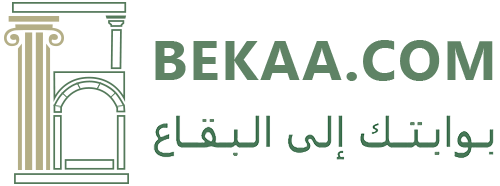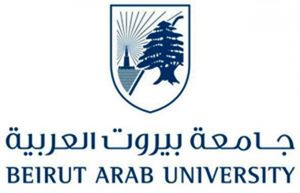BAU Research Center for Environment and Development
جامعات / Popular
The Research Center for Environment and Development at Beirut Arab University operates through a team of scholars and students from various BAU entities and a network of national and international investigators and research institutions.
BAU Projects:
Introduction to Saffron Farming
Crocus sativus (Iridaceae), commonly known as Saffron “زعفران”, is an annual herbaceous historically cultivated in the Mediterranean region for the commercial production of the most expensive spice in the world. For its high ecological adaptability for semiarid conditions, the cultivation of Crocus sativus in Bekaa region in Lebanon has been recommended as a promising option for rural development especially under the status of climate change. Thus, saffron cultivation has been attempted by individual private efforts and by the Institute of Agricultural Research. In attempt to explore its suitability to grow in Cental Bekaa and provide a continuous source of samples to the Faculty of Pharmacy and other faculties at BAU, RCED established a demonstration activity of saffron cultivation in 2012 that ended in August 2018. A brief report on the activity is developed and circulated to all collaborators and colleagues who are interested in the plant.
Groundwater Governance in the Arab World- Taking Stock and addressing the challenges
Led by the International Institute of Water Management (IWMI) and facilitated by RCED, this USAID funded project was intended to address the challenges facing groundwater in the MENA region (Tunisia, Jordan, Lebanon) and contribute to development of governance and policy solutions to the crisis of this important water resource in the region. The case of Central Beqaa was considered the case study of Lebanon. The primary aims of the project were to: 1) improve the awareness, knowledge and capacity of both national decision-makers and stakeholders at the level of four aquifers; 2) launch a participatory process to define problems and implement action plans to improve management and governance at the aquifer level. It reviewed the laws, regulations, community-based actions, and institutional structures, as well as their efficacy in controlling access, abstraction and allocation of the resource under varying circumstances. A White Paper to provide policy ideas and orientations in a summary form was developed by the research team.
Analyses and recommendations originating from dialogues and discussions with stakeholders during personal interviews and workshops as well as field work were presented in this White Paper. Through the various activities of the project, national capacities were built at many different levels of government officials, researchers, and other stakeholders, and informed dialogues between science and policy were fostered.
Hermon Mountain: Biodiversity Assessment Towards a Valorization and Conservation Action Plan
Lebanon is part of the Mediterranean Basin biodiversity hot spot which is the largest of the world’s five Mediterranean-climate regions and the second largest hot spot in the world. Mount Hermon is a mountain cluster in the Anti-Lebanon mountain range, a key biodiversity area in the Mediterranean Basin hot spot. The overall objective of this project is to develop a deep understanding of the flora biodiversity of Mount Hermon and improve livelihood of its surrounding areas through sustainable use, conservation, appropriate management strategies and social development.
BAU Herbal Garden for Lebanese Medicinal and Aromatic Plants
Realizing the importance of biodiversity as one of the pillars of sustainable development and the immense services plants provide for human well-being, RCED in partnership with the Faculty of Pharmacy at BAU and Green Hand Organization in Lebanon have jointly established “RCED Herbal Garden” for the conservation of some native medicinal and aromatic plants of high ecological, economic and social importance. Occupying an area of 11,000 m2 of a fertile land of BAU campus in Bekaa, the garden displays a sensory delight of these spectacular plants. It offers a place of enjoyment and attraction not just for visitors but also for bees, butterflies, birds and other life forms foraging on the fragrant colorful flowers and scented foliage. In addition to conservation, the garden is dedicated to providing educational information and plant material to viable research and healthful herbal products.
Cultivation of Origanum syriacum & Salvia officinalis in Bekaa
Cultivation of medicinal and aromatic plants (MAPs) is worldwide viewed as a means for meeting current and future demands for large-volume production of plant-based drugs and herbal remedies as well as developing the livelihood of rural communities in developing countries. Market analysis of MAP trades in Lebanon shows the domestic market is approximately worth US $35 million/year. The ministry of Agriculture, UNDP and other international organizations have taken some initiatives to promote the sustainable MAP harvesting and cultivation of Origanum syriacum (Oregano) as one of the most important herbs in the wild of Lebanon.
Though well suited to the ago-climatic conditions of Bekaa, MAPs cultivation has not been yet well appreciated as source of revenue and economic development in Bekaa region. Lack of adequate knowledge of cultivation and processing methods, unavailability of quality plant material and sound marketing plans present the main limiting factors impeding the development of these sectors.
This project aims to promote the cultivation of Oregano in Bekaa region (10,000 m2), provide knowledge of cultivation technology and improve agricultural production as a resource-base of local livelihood and national development.
Promoting beekeeping and high quality honey production at BAU
Being part of the Mediterranean Basin biodiversity hot spots, Lebanon is blessed with a rich biodiversity encompassing a wealth of vegetation that provide surplus nectar and pollen to foraging bees. Despite the long tradition of beekeeping in the country, having a high standing quality and leading honey producers, the productivity of this sub-sector has always been low both at the level of domestic utilization and export earnings. After some recorded success during the last a few decades, recent reports show that honeybee colonies in Lebanon are presently deteriorating due to Colony Collapse Disorder (CCD) and many other challenges. These include pests and diseases, pollution, indiscriminate applications of pesticide, destruction of vegetation cover, climate change causing the disruption and death of honeybees. This decline has alarmed Lebanese government, beekeepers, NGOs and environmentalists about the need to promote beekeeping improve honey production and conservation of native honeybees to ensure high pollination during local flowering seasons.
The objective of this project is to contribute to the conservation of the Syrian bee (Apis mellifera syriaca) and production of high quality honey in the unique settings of BAU Bekaa and Debbieh campuses and surrounding local areas. This will be achieved through the installation of 100 beehives and creating a platform for the implementation of Goal 7 (Deepening Public Engagement) of BAU Strategy 2020. By collaborating with Lebanese Beekeeper NGOs, international NGOs and development programs, the project will contribute to capacity building and facilitate hands-on training within the educational and ecological environment of BAU. It provides the opportunity to educate students, beekeepers and farmers on the importance of honeybees to ecology and development. Furthermore, the project will make available local honey and hive products to BAU and broader community.
- Listing ID: 2882

